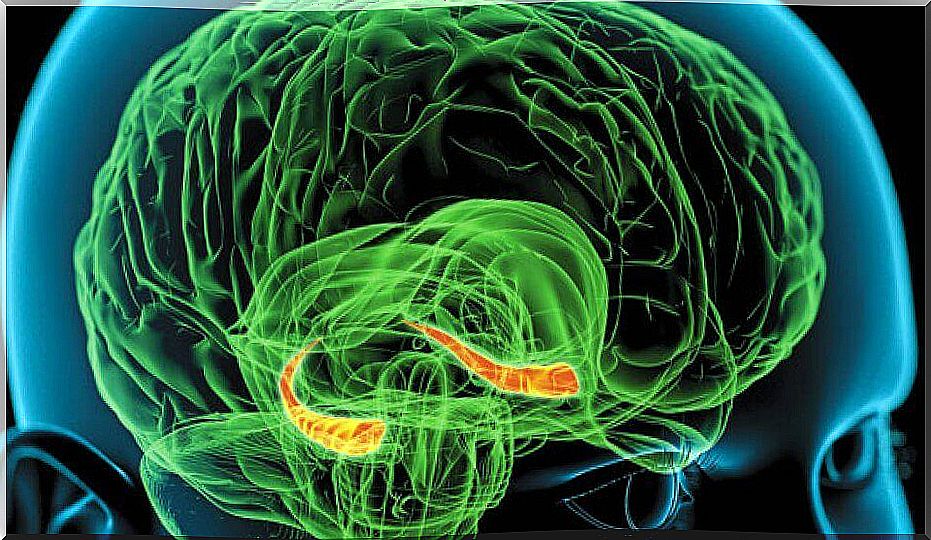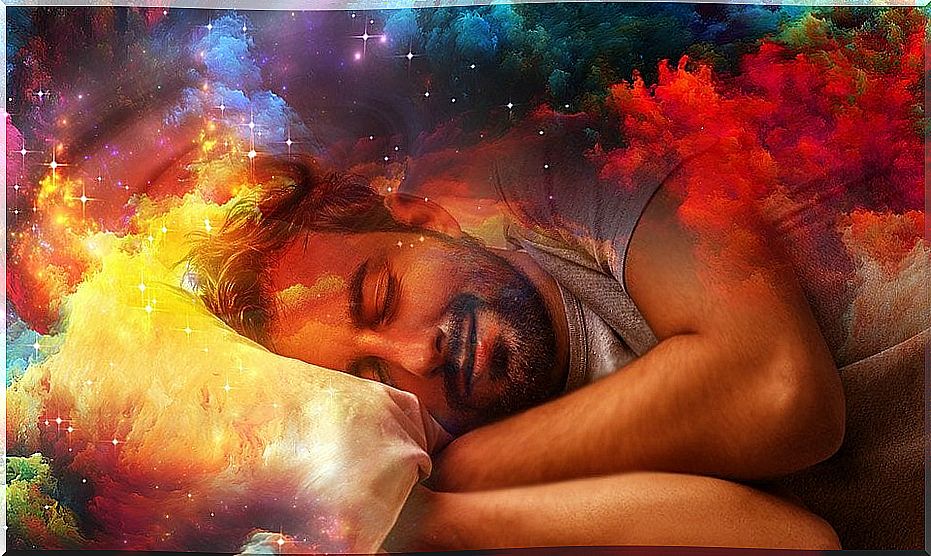Why Do We Remember Some Dreams But Not Others?

We spend almost a third of our lives asleep, but we do not always remember what happens in our dreams. We wake up from a strange and fascinating universe that sometimes gives us valuable and meaningful information, but we do not always remember it. Why is this happening? Why do we remember some dreams but not others?
Dali said that just because he did not understand the meaning of his art, did not mean that it had no one. Many of the works created by Dali, an unforgettable painter, sculptor and designer, were inspired by his dreams. Dali was a specialist in exploring his dreams.
Unfortunately, the majority of the population does not have this ability. There are very few who can remember their dreams. Most people wake up disoriented and with meaningless images. This phenomenon may frustrate you, but there are several reasons for it. Let’s look at some of them.

The answer lies in the brain. The dream cycles usually last between 90 to 100 minutes. This cycle is divided into different stages. One of these stages is REM sleep (rapid eye movement). That is when you have the most intense dreams. The dreams we are exposed to during this phase can be both frightening and fascinating. This is where you feel very intense emotions. It is important to know that REM sleep is the longest and the last. It is therefore common to wake up in the middle of the night and only remember the last moments of the dream.
Many neurologists say that the “sleeping” brain has no memory outside the dream stage. We are not programmed to store data during this phase because nothing useful happens to us. But if this is true, then why do some people remember their dreams?
An answer to this question is given in a new study from Monash University in Melbourne, Australia. This theory had already been proposed in 2011 in the journal Neuron after a series of tests with magnetic resonance imaging. It seems that the secret to this lies in the hippocampus. This structure in the brain is the “culprit” that makes us unable to remember many of the dreams we have every night.

If you think that the brain “shuts down” completely when you fall asleep, you are wrong. It does not turn off, but only goes into sleep mode. The hippocampus is one of the last parts of the brain that transitions to the sleep stage.
This area has i.a. as a task to transfer information from the short-term memory to the long-term memory. There are people whose hippocampus disconnects later than others, which allows them to remember their dreams. For the rest of us (around 90% of the population) we do not remember the dreams because the hippocampus is disconnected at a special time. This is the time when our brains choose that other things are “more important”.
The hippocampus does more than just regulate whether we remember dreams. One of its tasks is to go through information and decide what is important to remember and what is not. It deletes some data and removes duplicates of information and images we have seen during the day. These features keep the long-term memory healthier. The hippocampus focuses so much on this task that it does not pay attention to what you dream about.

Thanks to an article published in the journal Neuropsychopharmacology , we can see that the people who remember their dreams not only have a more conscious hippocampus, but also have a greater activity in the central parts of the brain that handle information.
Many of us would like to get better at remembering our dreams. We believe that we can understand things about ourselves better by doing this. You should know that none of the techniques we have discussed above are recommended or 100% effective.
The latest technique for remembering dreams is to set an alarm every 30-35 minutes. This awakening will let us remember our dreams, which we should then write down in a pad. However, this will give you low quality dreams, and you will not get your necessary rest. This is not recommended.
If we do not remember certain dreams, it is because the brain did not consider them important. On the other hand, the dreams we remember are always the most important. They contain an important emotional component and information that can be interpreted in many different ways.









